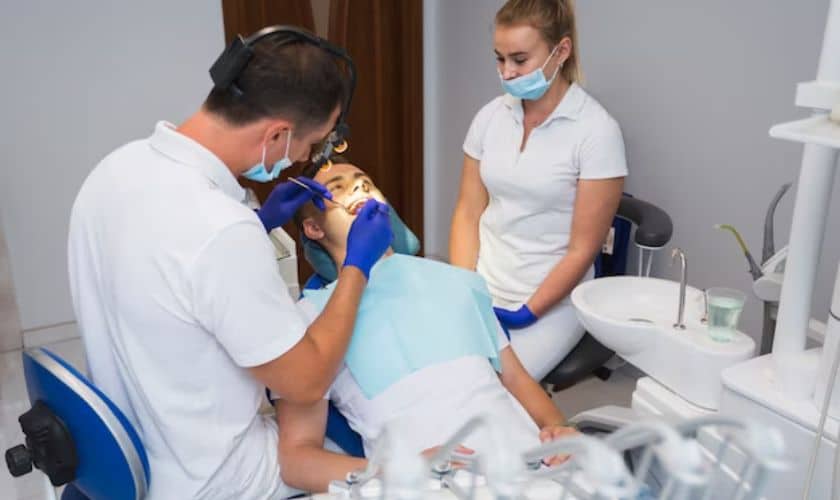
Imagine this scenario: It’s a quiet evening, and you’re enjoying your favorite meal when suddenly, you feel a sharp pain in your tooth. Or perhaps you’re playing a friendly game of basketball, and an accidental collision results in a broken tooth. Dental emergencies can happen when you least expect them, causing discomfort, pain, and anxiety. In such moments, knowing how to respond can make a significant difference in your overall oral health. This guide will provide you with valuable insights into emergency dentistry, helping you navigate dental crises with confidence.
Recognizing Dental Emergencies
Not every dental issue constitutes an emergency, but there are certain situations that require immediate attention. Some common dental emergencies include:
- Severe Toothache: Intense, persistent tooth pain can indicate an underlying issue that requires professional assessment.
- Chipped, Cracked, or Broken Tooth: Trauma to the teeth can result in fractures or breaks that need immediate attention to prevent further damage.
- Knocked-Out Tooth: A knocked-out tooth can often be saved if prompt action is taken.
- Lost Dental Filling or Crown: A lost filling or crown can expose sensitive tooth tissue and should be addressed quickly.
- Abscess: An infection in the mouth can lead to an abscess, causing pain, swelling, and potentially spreading to other areas of the body.
- Soft Tissue Injuries: Cuts to the gums, lips, or tongue that bleed excessively may need medical attention.
Steps To Take During A Dental Emergency
When faced with a dental emergency, here’s what you can do to manage the situation before seeking professional help:
- Stay Calm: Panicking can make the situation worse. Take a deep breath and try to remain composed.
- Assess the Situation: Determine the severity of the issue. If it’s bleeding, swelling, or pain, it’s likely an emergency.
- Contact Your Dentist: Reach out to your dentist immediately, explaining the situation. Most dental offices have emergency contact information available.
- Manage Pain and Swelling: Over-the-counter pain relievers can help manage pain, and applying a cold compress can reduce swelling.
- Preserve a Knocked-Out Tooth: If a tooth is knocked out, handle it by the crown (not the root), gently rinse it with water, and place it back in the socket if possible. If not, keep it moist by placing it in milk or saliva.
- Protect a Fractured Tooth: If a tooth is chipped or broken, rinse your mouth with warm water and keep any tooth fragments. Use a cold compress to minimize swelling.
Preventive Measures In Emergency Dentistry
While accidents can’t always be avoided, there are steps you can take to minimize the risk of dental emergencies:
- Maintain Regular Dental Visits: Regular dental check-ups can help identify potential issues before they become emergencies.
- Wear Protective Gear: If you participate in sports or activities with a risk of dental injury, wear a mouthguard.
- Avoid Chewing Hard Objects: Don’t use your teeth to open packages or chew on ice, as this can lead to fractures.
- Practice Good Oral Hygiene: Brush, floss, and rinse regularly to keep your teeth and gums healthy, reducing the chances of infection or decay.
- Be Mindful of Diet: Limit sugary foods and drinks, as they can weaken teeth and increase the risk of cavities.
Seeking Professional Help In Emergency Dentistry
Even if the pain subsides or the issue seems minor, it’s crucial to see a dentist as soon as possible. Dental problems can escalate rapidly, and early intervention can prevent complications down the line.
Lastly, emergency dentistry is all about staying prepared and knowing how to react when unexpected dental issues arise. By recognizing dental emergencies, taking appropriate immediate steps, and seeking prompt professional care, you can ensure the best possible outcome for your oral health. Remember, your dentist is your partner in maintaining a healthy smile, so don’t hesitate to reach out when a dental crisis strikes.
